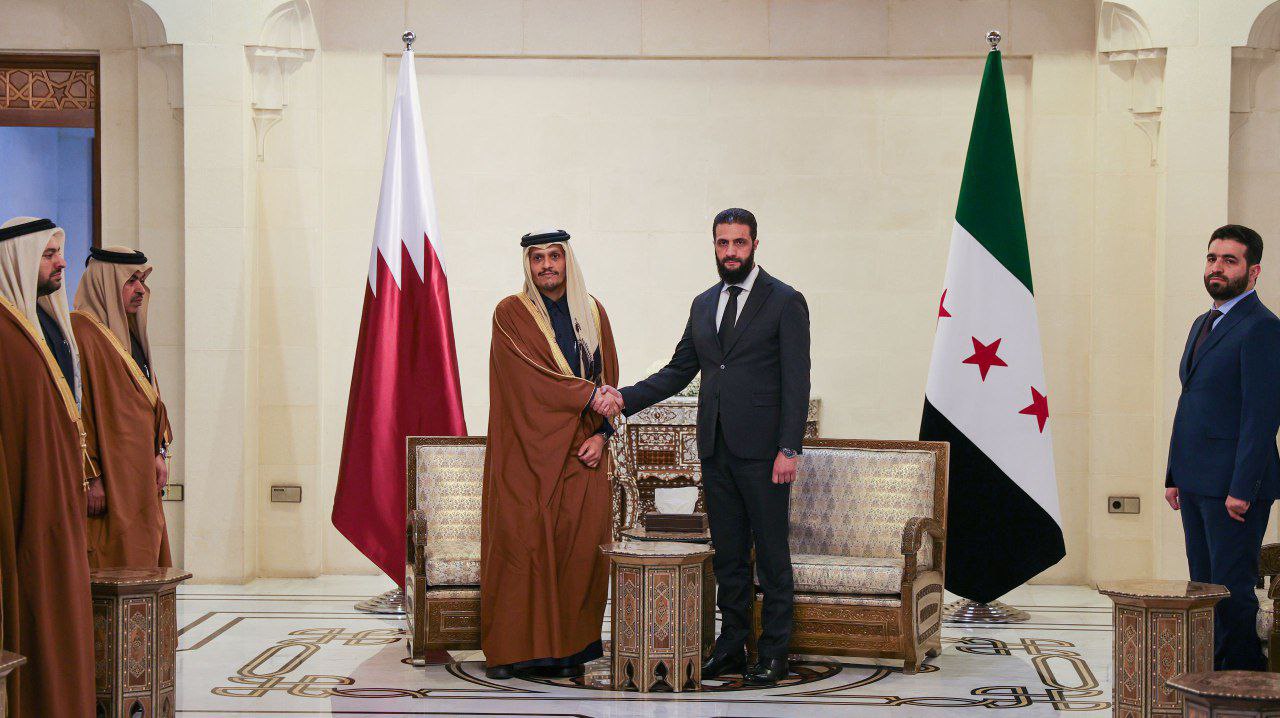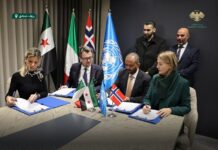
Momentum is building among Arab League member states to support Syria’s Transitional Government (STG) as the nation works toward reconstruction and stability following the fall of Bashar al-Assad’s regime. Qatar has emerged as a key player, advocating for increased regional cooperation, sanctions relief, and integration with the Arab League.
Qatar’s Leadership Role
Qatari Prime Minister and Foreign Minister Muhammad bin Abdulrahman Al Thani has taken an active role in strengthening ties with the STG. During a recent visit to Damascus, he emphasized Qatar’s commitment to supporting the new administration led by Ahmad al-Sharaa.
Speaking at a joint press conference, Al Thani called for lifting sanctions that he deemed outdated and detrimental to Syria’s recovery. “Sanctions imposed on the Assad regime are not logical now. The new administration cannot address international concerns while working under the burden of sanctions,” he said.
The Qatari Foreign Ministry has also highlighted regional coordination efforts to restore stability across Syria and manage the political process with inclusivity. Qatar reopened its embassy in Damascus last December, marking a significant step in reestablishing diplomatic ties after 13 years of closure.
Arab League Engagement
The Arab League has been a critical forum for reintegrating Syria into regional politics. A delegation led by Assistant Secretary-General Hossam Zaki visited Damascus to assess the political process and engage with Syrian leaders.
During a press conference, Syrian Foreign Minister Asaad al-Shaibani expressed his aspirations to “open a new page of cooperation and integration with our Arab brothers.” Al-Shaibani also called on Arab nations to contribute to Syria’s reconstruction, emphasizing the administration’s readiness to facilitate investments.
“Syria is a pivotal country, and what happens here affects the Arab world,” Zaki said. He noted that sanctions on Syria “no longer have any justifications” and pledged the League’s support in coordinating efforts to lift them.
Regional Developments
Syria’s relationship with other Arab nations continues to grow. The United Arab Emirates (UAE) has also shown increased engagement, with UAE President Muhammad bin Zayed Al Nahyan discussing bilateral cooperation during a call with al-Sharaa. A Syrian delegation led by Foreign Minister Al-Shaibani recently visited Abu Dhabi to explore avenues for collaboration.
At a press conference, Al-Shaibani praised the UAE’s role in supporting Syria’s recovery and emphasized the importance of maintaining territorial integrity.
Addressing Regional Security
Regional leaders have also raised concerns about external threats to Syria’s stability. Both al-Sharaa and Al-Thani condemned Israel’s recent incursions into Syrian territory, calling for the immediate withdrawal of Israeli forces from buffer zones. Al-Sharaa affirmed Syria’s commitment to international agreements and its readiness to welcome UN peacekeeping forces to the region.
Al Thani reiterated Qatar’s stance on maintaining Syria’s territorial integrity. “We want to see Syria as a state of citizenship based on competence, not sectarianism,” he said, adding that Qatar remains committed to supporting the STG’s vision for a unified nation.
A New Chapter for Syria
The growing support from Qatar and other Arab League members signifies a turning point for Syria’s Transitional Government. With regional cooperation, sanctions relief, and humanitarian aid, the STG has an opportunity to address pressing challenges and rebuild the nation.
However, the path ahead is complex. Balancing regional security concerns, integrating diverse societal groups, and fostering inclusive governance will require sustained effort and international collaboration. As Arab nations rally behind the STG, the promise of a stable and prosperous Syria comes closer to realization.








